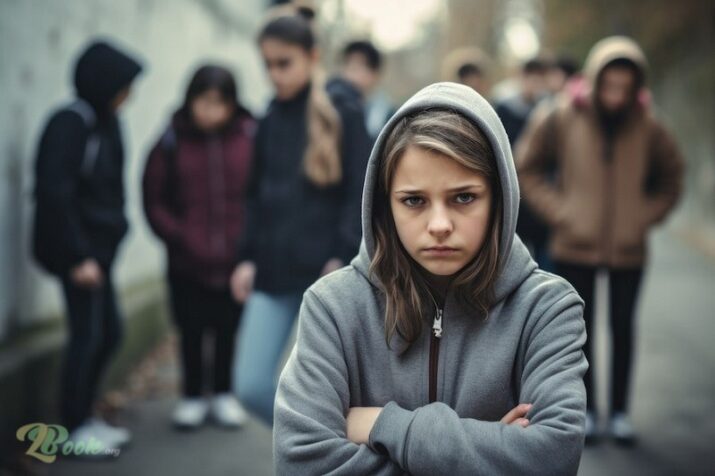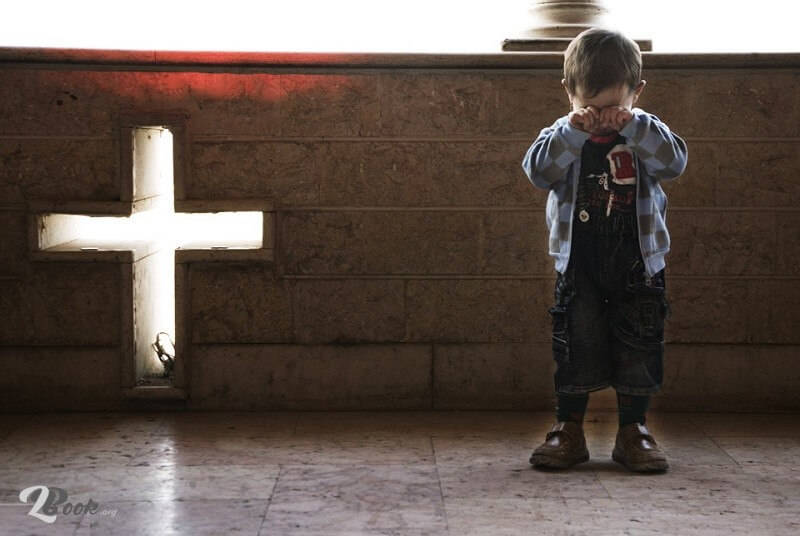Youth in Crisis: Exploring Moral Decline and Violence
Youth in Crisis: Exploring Moral Decline and Violence
Introduction
In a tragic incident that broke many hearts, a Christian young man in his twenties became a victim of ruthless violence. The perpetrator, another young man aged twenty-five, deliberately ran over the victim with his car multiple times until he ensured that he was dead.
This incident is not just a crime; it represents a deeper phenomenon that reflects the deterioration of values and ethics in an entire generation. Many questions arise: Where is Christ in the hearts of these young people? Has compassion and humanity died in their minds? This article seeks to explore this phenomenon, understand its causes, and propose possible solutions.

Background of the Incident
The events unfold in a context characterized by social and economic tension. The young victim, who was at the beginning of his life, embodies a generation full of dreams and ambitions, yet he faced a tragic fate at the hands of another young man, who was supposed to be a peer in humanity.
The use of a car as a weapon reflects a shift in how young people view life and humanity, as it seems that human values have faded in the face of greed for revenge and violence. This incident, while individual, highlights a profound moral crisis that transcends the individuals involved, reaching society as a whole. As such events become more frequent, feelings of anxiety and fear among community members increase, contributing to the erosion of social bonds.
Causes of the Deterioration of Values and Ethics
The Distance from Religion
Religion, particularly Christian values, is one of the fundamental factors that shape individuals’ morals. However, we see a clear decline in the practice of religious rituals today, leading to a loss of spiritual values. When young people distance themselves from prayer and religious teachings, they lose the moral compass that guides them toward goodness.
Religion is not just rituals; it is a system of values that fosters empathy and compassion. Religious values provide an ethical framework that helps young people navigate life’s challenges. Therefore, reconnecting with religion can be a crucial first step in restoring lost values. Religious institutions can play a significant role in creating supportive and guiding environments that encourage youth to return to spiritual teachings.
Immersion in Material Life
Today, a culture of consumption and boasting about appearances prevails. Young people live in a world full of material temptations, which makes them forget fundamental human values. They pursue material achievements at the expense of human relationships and ethics, leading to the proliferation of violent behaviors.
Immersion in material life isolates individuals from one another, increasing feelings of loneliness and alienation, thereby pushing them toward negative actions. Additionally, the focus on appearances causes a loss of self-esteem, which reinforces aggressive behaviors as a means to gain attention and recognition. It is crucial to promote dialogue about the importance of human values over superficiality so that young people understand the significance of meaningful human relationships.
The Influence of Media
Media plays a significant role in shaping young people’s thoughts. In a context filled with violent and controversial content, it becomes easy for youth to accept violence as a solution to conflicts. Frequent exposure to violence can normalize these actions, making them easier to commit in daily life.
We must recognize that media is not merely a transmitter of facts; it is a powerful influencer that can shape the minds of future generations. Using media to promote positive messages and enhance human values can help mitigate the impact of violence. Media outlets should take responsibility for presenting content focused on empathy and understanding, which can support the construction of a more tolerant society.
Absence of Role Models
With the decline of religious values, young people lack role models to look up to. Parents and society do not provide sufficient support, leaving youth feeling lost. The absence of inspiring figures that embody human values and ethics increases the prevalence of negative behaviors.
We must strive to present positive role models within society, ensuring that young people have figures to emulate that reinforce values of compassion and empathy. Presenting examples of positive success can inspire youth to build a better future. Educational and community institutions can play an active role in promoting figures that future generations can look up to by organizing events and lectures featuring positive personalities.

Violence as a Societal Phenomenon
Rising Rates of Violence
Statistics indicate that rates of violence among youth are continuously increasing. Tragic incidents, such as the one that led to the death of the Christian young man, are merely the tip of the iceberg. Violence has become a societal phenomenon that requires radical solutions. There must be collective efforts to address this phenomenon, whether through awareness or by reinforcing human values.
Working to raise awareness about the dangers of violence and its effects can contribute to reducing this phenomenon. It is essential for government institutions and civil society to collaborate in developing educational and awareness programs targeting youth, enhancing their understanding of the impacts of violence.
Violence as a Means of Expressing Anger
Many young people resort to violence as a way to express their feelings, whether it be anger or frustration. They attempt to regain control over their lives through these actions, yet they deepen feelings of isolation and failure. The inability to express emotions adequately leads to an escalation of violence as a means of releasing psychological pressures. Prioritizing programs that teach young people how to handle their emotions positively is essential, providing workshops and training sessions focused on communication and stress management skills.
The Impact of Violence on Society
Violence affects not only victims but also resonates throughout the community. It leads to a lack of safety and increases social tension, creating an unhealthy environment for all. This phenomenon is not just an individual problem; it is a societal issue that requires collective intervention. We must work together to build a society characterized by peace and understanding, which requires efforts from all concerned parties. Promoting dialogue among various societal groups can contribute to building a culture of tolerance and acceptance, making it easier to address conflicts peacefully.
The Effects of Violence on Individuals and Society
Psychological Impact
Violence has profound psychological effects on individuals. Victims and witnesses suffer from psychological trauma that may persist for years. These traumas affect their quality of life and can lead to mental health issues such as depression and anxiety. Addressing these effects requires comprehensive efforts from mental health professionals and the community. Providing psychological and social support services can help individuals recover from the consequences of violence. Targeted programs for mental health treatment should be made available to those affected by violence to help them overcome their negative experiences.
Deterioration of Social Relationships
Violence leads to the deterioration of relationships among individuals. Trust erodes, and relationships become based on fear rather than understanding. This deterioration negatively reflects on society as a whole, leading to a lack of cooperation and empathy among individuals. Enhancing positive communication and opening channels of dialogue can help improve social relationships. We should adopt an approach that focuses on building trust and collaboration, aiding in the reconstruction of social bonds affected by violence.
The Impact of Violence on Social Development
Communities suffering from violence face significant challenges in terms of development. Violence hinders social and economic progress, making it difficult to attract investments and achieve sustainable development. Therefore, comprehensive strategies aimed at combating violence and promoting human values must be established. Investments in education and social development can contribute to building a more stable society. Emphasis should be placed on developing sustainable educational programs that enhance social awareness and foster future leaders capable of driving positive change.
Recommendations to Combat Violence
Reinforcing Religious Values
Religious institutions should work to revive spiritual values among youth. Organizing workshops and educational courses can help raise awareness of the importance of religion in their lives. Strengthening spirituality can be a pivotal factor in restoring human values. Focus should be placed on how to apply these values in daily life, contributing to a more positive environment. Community activities that bring youth together can foster connections and enhance empathy.
Providing Psychological Support
Youth require psychological support programs to help them cope with social and personal pressures. Counseling centers should be made available to offer support and guidance. Creating safe spaces for young people to express their feelings can positively impact their behavior. These programs should also include training in life skills and communication, enhancing their ability to face challenges. Schools and communities should collaborate to develop comprehensive programs that support mental health.
Changing Media Content
Media must take responsibility for presenting positive content. Efforts should be made to disseminate messages that promote human values and advocate peaceful solutions to conflicts. Media should be a tool for positive change, not merely a transmitter of news. Organizing media campaigns aimed at raising awareness of human values can be beneficial. Partnerships between civil society and media outlets should be developed to create content focused on promoting understanding and mutual respect.
Activating the Role of Family
Families should play an active role in guiding their children toward human values. Providing a role model through daily behaviors can have a positive impact. The family is the first school where youth learn values, so they must be aware of their role. Encouraging dialogue within the family can strengthen relationships. Families should foster open communication with their children, enhancing understanding and reducing tensions.
Implementing Educational Programs
Educational programs focusing on promoting human values and intercultural understanding should be introduced. Education is a powerful tool for changing negative concepts and ideas. These programs can help foster empathy and understanding among youth, contributing to the development of a more tolerant society. Activities that encourage collaboration and teamwork should be included in these programs. It is essential that these programs are accessible to all, ensuring that every young person has the opportunity to learn human values.

Conclusion
The tragic incident that claimed the life of the Christian young man is not just an isolated event; it is a call to reflect on the current state of our youth today. The distancing from religion, immersion in material life, the influence of media, and the absence of role models are all factors contributing to the deterioration of values and ethics. If we do not take urgent action, this generation may face a dark fate.
We all must be part of the solution and work together toward building a better society founded on human values and ethics. Collective effort, with a focus on reinforcing spiritual values, can be the key to saving this generation from destruction. We must unite as individuals and institutions to become positive agents of change, set an example, and contribute to building a better future for all upcoming generations.
More Human Subjects
- God’s Commandment Says, Honor Your Father and Your Mother
- After Raping Her, They Put The Cross in Her Mouth
- Is There A True Friend In This Time – What Is A Friend?
- We Are the Dirtiest Nation Ever Created (Writer Wafaa Salma)
- Does the Word of God Have an Impact on Your Life?
- Is There A True Friend In This Time – What Is A Friend?







